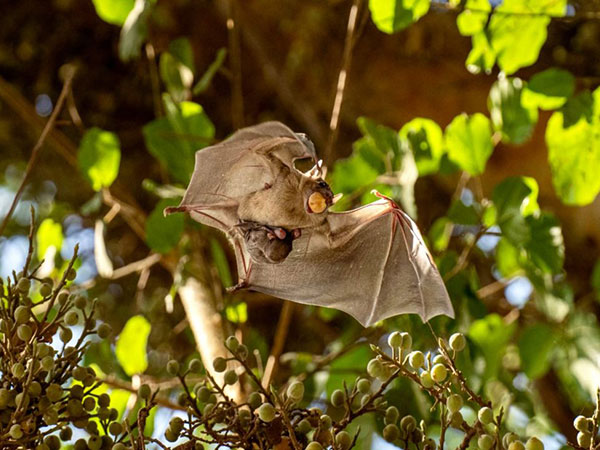

Bats are well known for their keen sense of hearing, being able to navigate and hunt in the dark by assessing sound signals and echoes. But a new study revealed for the first time that bats experience age-related hearing loss.
A study by a team of Tel Aviv University researchers found that hearing loss does occur in bats, however at a slower rate compared to humans and other mammals. The findings challenge prevailing scientific assumptions that bats were immune to age-related hearing loss.
But research conducted by PhD student Yifat Tarnovsky of Tel Aviv University in collaboration with a team led by TAU Professors Yossi Yovel and Karen Avraham overturns this belief. Their findings were recently published in the peer-reviewed Life Science Alliance.
The researchers hope that understanding these adaptations can provide new insights about the mechanisms of age-related hearing loss in humans.
“The relatively slow rate of age-related hearing loss (similar to the rate in humans) despite lifelong exposure to very high noise levels may indicate that bats have developed special adaptations for coping with their noisy surroundings,” said Yovel.
The study focused on wild Egyptian fruit bats, a species known for its reliance on echolocation to navigate its environment.
Echolocation is a technique used by animals to determine the location of obstacles, objects, friends, foe and prey by analyzing reflected sound. Bats are best known for echolocation, but whales, dolphins and certain species of birds also have this skill.
By using DNA methylation accumulation to determine the age of the bats, the researchers conducted auditory brainstem response tests to assess their hearing abilities. The findings unequivocally demonstrated age-related hearing loss, with deterioration more pronounced in higher frequencies–similar to the pattern observed in humans.
Further investigations indicated that the cochlear structure and function, as well as slower processing by the auditory nerve, contributed to the bats’ hearing loss. This deterioration has potential implications for the bats’ echolocation capabilities, vital for their survival. In bats with compromised eyesight, which rely heavily on echolocation, the hearing loss could significantly impact their ability to navigate and perform essential tasks.
Researchers postulate that one factor contributing to hearing loss in Egyptian fruit bats could be the cumulative exposure to high noise levels within their colony. These bats live in large colonies and employ loud social vocalizations for communication. Surprisingly, the study revealed that the loudest noise in their environment occurred in low frequencies, while the hearing loss predominantly affected high frequencies.
Yovel suggested that the relatively slow rate of age-related hearing loss, despite lifelong exposure to high noise levels, indicates that bats have potentially developed special adaptations to cope with their noisy surroundings. Understanding these adaptations may open up new avenues for research and potential interventions for humans.